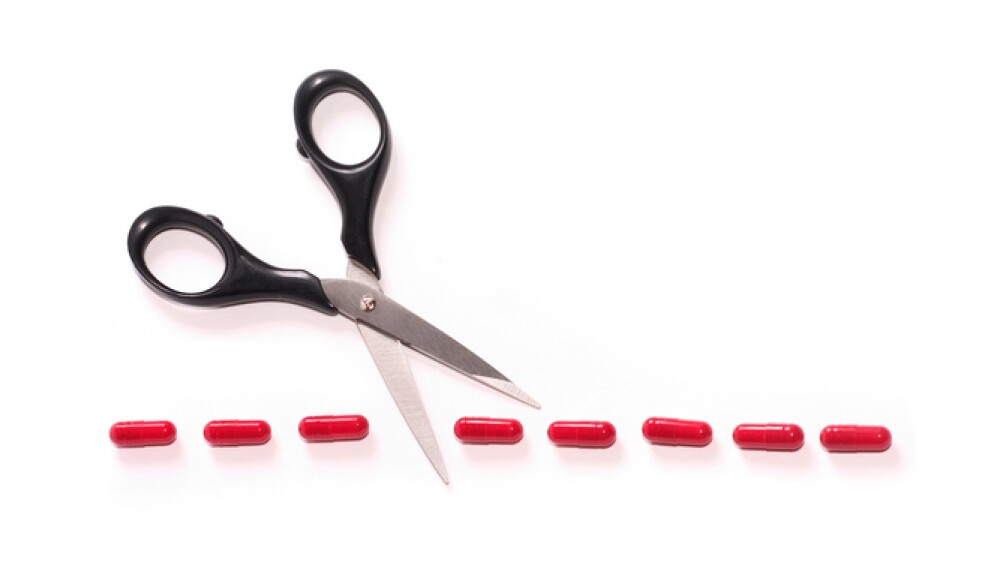The study drug is a once-daily, two-week therapy developed by Sage Therapeutics and Biogen for major depressive disorder (MDD) and postpartum depression (PPD).
Pivotal Phase III trial results show Sage Therapeutics and Biogen’s investigational depression drug, zuranolone, significantly reduced depressive symptoms after two weeks of treatment compared with placebo.
The study drug is a once-daily, two-week therapy developed by Sage Therapeutics and Biogen for major depressive disorder (MDD) and postpartum depression (PPD). Investigational zuranolone is an oral neuroactive steroid GABA-A receptor positive allosteric modulator which the U.S. Food and Drug Administration previously granted Breakthrough Therapy Designation.
In the pivotal, late-stage WATERFALL study, a total of 543 patients with MDD aged 18 to 64 years were randomly assigned to either zuranolone or placebo. All patients had a HAMD-17 total score of 24 or greater at screening as well as on day 1 of dosing.
Topline results from the WATERFALL Study, announced today, show that treatment with zuranolone 50 mg led to statistically significant improvements in depressive symptoms by day 15 compared with placebo. Depression symptoms in the study were assessed by the 17-item Hamilton Rating Scale for Depression (HAMD-17) total score.
The least squares (LS) mean change from baseline in the HAMD-17 total score was 14.1 for the zuranolone 50 mg by day 15 versus -12.3 (0.50) for the placebo group (LS mean difference=-1.7 points; p=0.0141).
“This will empower my patients to think differently about their depression and treatment, and to rapidly return to their life,” said Anita H. Clayton, M.D., Chair of Psychiatry and Neurobehavioral Sciences, University of Virginia School of Medicine, in a statement on the WATERFALL findings. “Depression is not an identity, it’s an episodic disorder that we hope in the future to be able to treat quickly with treatments that are well-tolerated and with benefits that last.”
Zuranolone was reportedly well-tolerated in the trial and showed a safety profile generally consistent with reports in previous studies. Treatment emergent adverse events were reported in 60.1% of patients in the zuranolone group versus 44.6% of patients in the placebo group.
“These results represent hope and positive progress for the more than 250 million patients worldwide who are estimated to live with depression,” according to a statement made by Biogen’s Head of Research and Development, Alfred Sandrock, Jr., M.D., Ph.D.
“Major depressive disorder is a common co-morbidity of many diseases represented in Biogen’s neuroscience portfolio. We believe zuranolone has the potential to offer a unique, first-in-class therapeutic for depression with a distinct benefit-risk profile to people living with this common but serious mental health condition.”
In November 2020, Biogen bet big on zuranolone by forging a $1.52 billion deal with Sage Therapeutics to develop and commercialize the drug for MDD, postpartum depression and other psychiatric conditions. The announcement came over the Thanksgiving holiday weekend and followed positive, top-line interim results from another Phase III study in MDD, showing that zuranolone was well-tolerated and associated with a positive response during an initial 2-week course.
Back in 2019, however, zuranolone was unable to distinguish itself from placebo after 15 days in regard to changes in the HAMD score in the MOUNTAIN study. Continued analysis of the study data was encouraging, Sage reported, ultimately showing a positive benefit on depressive symptoms when coupled with other clinical data. Most recently, Sage found that the majority of patients with MDD treated with 2-weeks of zuranolone at 30 mg and 50 mg achieved a positive response by day 15, according to findings from the SHORLINE study.





